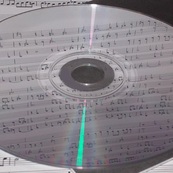
Property is pretty straightforward, right? If you own a car, you can drive it; you can decide who else gets to drive it and when; you can sell it or give it away, or even destroy it if you like. And importantly, if someone steals it, you lose the ability to do any of these things. But intellectual property is quite different. It can be copied and used by others without depriving you of your ability to use it, although this may interfere with your ability to make money from it. Copying without permission therefore has to be prohibited. Or does it?
I honestly don’t know quite what to think about intellectual property. I haven’t read enough about it to make up my mind. But I do know that it’s weird. If you own a house, a necklace, a piano, they’re yours as long as you want them, and if they’re still in your possession when you die, you can transmit your ownership to friends and family, and they remains theirs as long as they want them, and so on indefinitely.
Intellectual property, on the other hand, expires. In the United States, if you own the copyright to a song, for instance, you can pass it along after you die, but it will expire 70 years after that, at which point anyone can perform and record it without permission. Patents for things like new machines or pharmaceuticals expire 20 years after filing, although they can be extended. These time periods are set by law, which gives intellectual property an arbitrariness that physical property does not have.
Do intellectual property rights make sense? Are they necessary for the promotion of artistic and scientific creation? Are they enforceable in the Internet age, when more than ever, information wants to be free?
On the one hand, pharmaceutical companies claim that existing patent laws are not long enough for them to profitably develop new antibiotics, which could lead to really serious problems in the pretty near future. On the other hand, it’s hard to see how knowing that my copyrights will outlive me by 70 years is supposed to encourage me to write more. And actually, lots of artists are opting for a “pay what you want” model that bypasses the issue entirely. As musician Amanda Palmer suggests in a wonderful video, this model might not be lucrative enough to produce “untouchable stars,” but it can allow artists to make a good living—and it might just allow them to connect with their fans on a more intimate level.
Intellectual property, on the other hand, expires. In the United States, if you own the copyright to a song, for instance, you can pass it along after you die, but it will expire 70 years after that, at which point anyone can perform and record it without permission. Patents for things like new machines or pharmaceuticals expire 20 years after filing, although they can be extended. These time periods are set by law, which gives intellectual property an arbitrariness that physical property does not have.
Do intellectual property rights make sense? Are they necessary for the promotion of artistic and scientific creation? Are they enforceable in the Internet age, when more than ever, information wants to be free?
On the one hand, pharmaceutical companies claim that existing patent laws are not long enough for them to profitably develop new antibiotics, which could lead to really serious problems in the pretty near future. On the other hand, it’s hard to see how knowing that my copyrights will outlive me by 70 years is supposed to encourage me to write more. And actually, lots of artists are opting for a “pay what you want” model that bypasses the issue entirely. As musician Amanda Palmer suggests in a wonderful video, this model might not be lucrative enough to produce “untouchable stars,” but it can allow artists to make a good living—and it might just allow them to connect with their fans on a more intimate level.